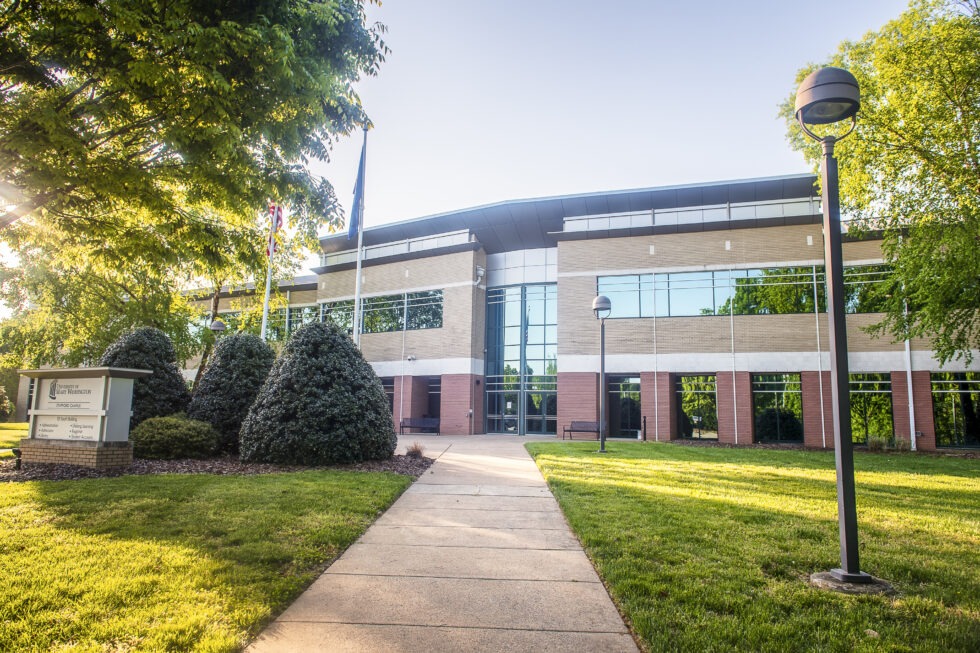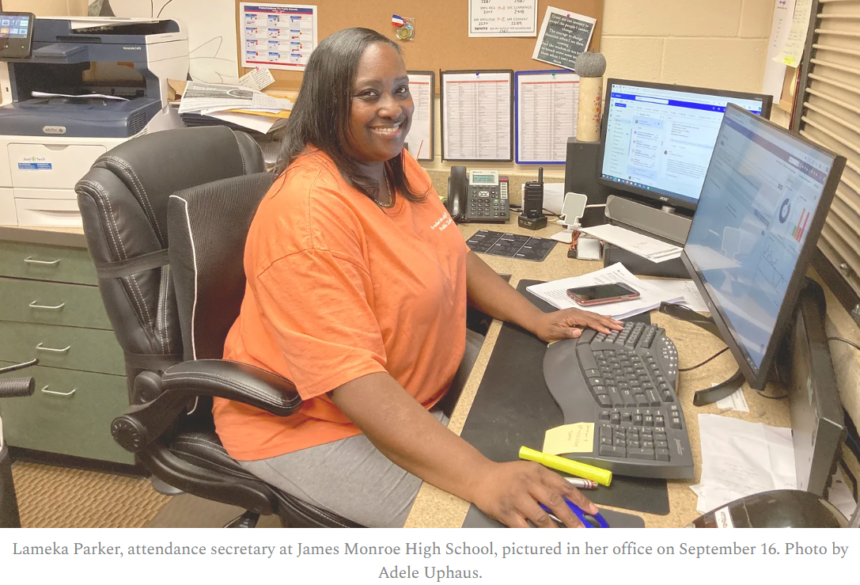
by Adele Uphaus
MANAGING EDITOR AND CORRESPONDENT
Last week’s approval by the state Board of Education of two new lab school applications brings the total new schools approved in Virginia to three – and two of them are connected with colleges in the Fredericksburg area.
The Academy of Technology and Innovation (ATI) at the University of Mary Washington and the Future Educators Academy at Germanna Community College are both scheduled to open in fall of 2024.
ATI is a four-year high school to be housed at UMW’s Stafford Campus off U.S. 17. It’s designed to train students with an interest in computer science – or in liberal arts – for careers in coding, data science, cybersecurity, digital design and related fields.
The school is currently accepting applications from eighth-graders in Stafford, Caroline, King George or Fredericksburg City public schools.
No experience or coursework in any of these areas is necessary, according to a press release about the lab school issued by UMW last week.
The first cohort of 100 students will be selected by lottery in January.
The Future Educators Academy is a partnership between Germanna Community College, Laurel Ridge Community College, James Madison University and public school divisions in Culpeper, Madison, Rappahannock and Orange counties, said Taylor Landrie, Germanna’s special assistant to the president for strategic initiatives.
“It’s an early college accelerated learning program for students who know they want to become teachers,” Landrie said. “We know that lots of young people want to become teachers and we have a teacher shortage, so the problem is somewhere in the middle there. Maybe there are barriers in their personal lives, and the process of getting through college and licensure is complicated and lengthy.”
The goal of the Future Educators Academy is to offer a smoother path to teacher licensure that includes hands-on learning and “robust wrap-around supports” and eventually leads the students back to work in their rural school divisions, where the teacher shortage is more critical.
The two-year program will launch in the fall for 24 juniors from the participating school divisions, who will travel to Germanna’s Daniel Technology Center in Culpeper for half-day classes with their cohort.
In fall of 2025, the program will grow to include other central Virginia school divisions, such as Fauquier, Paige, Shenandoah and Warrenton.
What are lab schools?
Lab schools are defined by Virginia Code as “public, nonsectarian, nonreligious school … established by a public institution of higher education, public higher education center, institute, or authority; or an eligible private institution of higher education.”
They are being championed by Gov. Glenn Youngkin as “the first step in giving parents new options for their kids to learn in innovative and creative ways and break the status quo of a one-size-fits all education.”
Legislation passed in 2010 under Republican governor Bob McDonnell established a College Preparatory Lab School Fund, but it didn’t do much until the 2022 General Assembly, under Youngkin, infused it with $100 million to establish new lab schools.
Of that, $5 million was available for planning grants; $20 million for initial start-up grants for approved lab schools to make one-time purchases for launch expenses; and $75 million (or the balance of the fund) for per-pupil operating grants to support on-going expenses.
How are they funded?
ATI received a $200,000 planning grant and an initial start-up grant of “at least $1 million,” according to a presentation given this fall to local school boards by Rebecca Towery, the school’s director.
The start-up grant will be used to hire additional staff, including six teachers.
Operating grants from the state will augment local contributions in years one through five of the school’s existence.
Towery is estimating the per-pupil contribution from the participating school divisions to be $8,500 for the first year; $9,000 the second year; $9,500 the third year; $10,000 the fourth year and $10,500 the fifth year.
The school will eventually have about 400 students. In the first year, “divisions will likely have anywhere from 5-55 seats depending on the … population and interest level,” Towery said in an email to the Advance.
The highest per-pupil expenditure of $10,500 is less than the average per-pupil expenditure among local school divisions in 2021, according to Towery’s presentation, but it has given pause to the Spotsylvania School Board, which cited the per-pupil expense as one of the reasons it declined to approve an operating agreement with the lab school.
The Future Educators Academy also received an initial start-up grant of $1 million, Landrie said, and up to $6 million in on-going per-pupil funding for three years.
Some of the grant funding will be used to hire staff for the Academy, Landrie said.
“We know that high school students who are balancing high school and community college require extra support and care, so we want to make sure we are staffed accordingly to provide what’s needed,” Landrie said.
What will they offer?
ATI plans to offer a combination of classroom learning – with some original curriculum, Towery told the Spotsylvania School Board on Nov. 13 – as well as independent and small group learning.
It will support students with individualized education plans as well as those who are identified as gifted.
Teachers are encouraged to add an English learner endorsement to their licenses so that they can support this population as well, according to the presentation.
The school will also serve as an expanded classroom for students in UMW’s College of Education. The hope is that new teaching practices developed at the school will spill out into surrounding school divisions, Towery told the Spotsylvania School Board.
Students of the Future Educators Academy will take classes in the mornings on Monday through Thursday and spend Fridays attending practicums at each of the participating school divisions.
“Each of the divisions has committed to identify one of their best teaching practices and highlighting that in the practicum rotation,” Landrie said. “(They’ll also be) encouraging students to observe teacher meetings, parent-teacher conferences, all of the pieces of being an educator, so they’ll be really well prepared when they start their first year of teaching.”
Students who enter the Future Educators Academy also commit to teaching for two years in their home school division.
“It’s all about getting kids passionate about being teachers and then giving them an opportunity to teach in their hometowns,” Landrie said.
AIT is hosting an open house for interested families on Dec. 5 from 5 to 7 p.m. Register to attend at the school’s website, atiumw.org.





